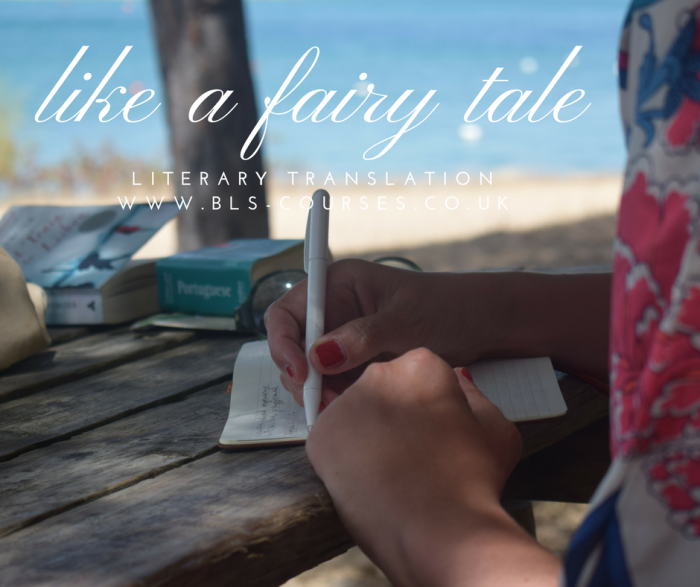In this blog post we continue our investigation into different types of translation. We take a look at what is meant by literary translation, what kinds of methods it uses, why you might like to consider a career in literary translation – and how to get started in it if you would like to. We think you will agree, literary translation is quite different from machine translation, which we looked at in a previous post!
What is literary translation?
Literary translation is a type of specialist translation that consists in translating novels, poetry, and other works of literature into another language, keeping the literary style. “Translation is that which transforms everything so that nothing changes,” said Günter Grass. However, no two translations of the same literary text are likely to be the same. This is because translating literature is an interpretative act and literary translators are individuals. As literature is a creative art, translating it should be too! As an author’s identity can come out in their writing, so can a literary translator’s identity come out in their creative translation.
A literary translation should keep the feel and style of the work of literature. It might change the original in terms of literal meaning, because this is sometimes needed to make something understandable to a reader from a different culture. This might mean using a different metaphor or a different comparison. When this happens, something may be lost but something else may be gained. But loss is not necessarily the most important thing, says Daniel Hahn, director of the British Centre for Literary Translation in this interview about literary translation. According to Hahn, the keys to translation are very close, careful and thoughtful reading and precise, careful and thoughtful writing. It is likely that the author has chosen a specific word for a specific reason, and thoughtful reading can help the literary translator work out why the writer chose that word, and what is the best word (or what are the best words) to put in its place. According to Urdu language translator Fahmida Riaz, literary translators have to find a way to convey something that is obvious to original readers because of the culture they are familiar with to those who are unfamiliar with that culture and unlikely to recognise cultural references. Literary translators usually translate into their native language, which is an advantage from a the perspective the cultural, historical and geographical references in the text.
Why is literary translation important?
The book trade is becoming increasingly global, and as such the role of the literary translator has never been more important to make sure that the book industry keeps up with the rate at which new, high quality titles are published in other languages. Literary translation helps authors achieve global recognition and allows audiences to experience a richer variety of literature – and experience that echoes the global connectedness of today’s world.
Why become a literary translator?
Literary translation is an enjoyable exercise and allows literature lovers to get close to the literature they love. It is a flexible job that you can do anytime, anywhere and freelance translation can be combined with other jobs (which may also be necessary). It is also a career that you can begin at any time in your life.
How can I learn to be a literary translator?
It is not essential to have studied literary translation to be a literary translator, and translators’ abilities are usually judged by a sample text. That said, many literary translators do take courses to improve their abilities as translators and to learn more about the world of literary translation. A common course of study is an MA in Literary Translation. This type of course gives you practical experience of literary translation. According to this author, having an MA in Literary Translation can also help translators get a job, including with firms specialising in technical or commercial translation. It is also a mark of approval that helps freelance translators get recognised. You can find a list of some MA Translation courses in this blog post. You might want to look into the PETRA-E Network, a European network of institutions dedicated to the education and training of literary translators. If you are unable to do a whole MA course or you wish to brush up your skills on a specific aspect of literary translation; the British Centre for Literary Translation runs a summer school. They also have a Mentorship Scheme that can help new literary translators develop their skills. Mentoring can also be informal and you could ask an established literary translator for help. You can also do co-translations with more experienced translators to gain insight into how the translation business works and how to communicate with editors, authors, and other people involved in the publishing process.
How do I find work as a literary translator?
This blog author believes that it is relatively easy to become known in the literary translation world as there are many platforms to join and meet others in the profession. These include the Emerging Translators Network, Literature Across Frontiers, the Literary Translation Centre at the London Book Fair and the Translators Association. You can also make contacts by taking part in debates and attending translation events. Prepare a sample of your work and submit it to publishers. You can make a name for yourself by entering literary translation competitions, and develop an online presence to advertise your skills. You will need to keep up with what is being published and keep searching for contacts. What appears to be less easy is making vast amounts of money straight away from literary translation!
Is now a good time to be a literary translator?
According to the London Book Fair, a barrier preventing the flow of titles from one country to another is that not many titles are translated into English. However, good existing translators and up-and-coming talent are working towards making a change in literary translation, and literature in translation is becoming ever more popular and mainstream in the UK. Also, Daniel Hahn assures us that it is a really good time to be a literary translator into English, especially in the UK. There is more literature in translation in English than there used to be, even if it is still not as prevalent as it is in other languages. Hahn also feels that there is excitement around literary translation and a dynamism to the profession and to literature as a whole in the UK today. There is new and fresh talent in literary translation which is being recognised.
Where can I learn more?
If you are interested in knowing more about literary translation, there are several places you can find information on it. The British Centre for Literary Translation has a lot of information about literary translation and a lot of very useful links. This interview gives a good summary of what can be expected from literary translation and what linguists wanting to get into literary translation can expect. This blog post gives you an idea of what it feels like to start out as a literary translator, and how to go about it if it is something you want to do. This one gives the view of a seasoned literary translator who still enjoys what she does. Finally, this post gives an overview of the whole process of translating a book.
If you decide that literary translation is the career for you, we wish you good luck and lots of reading pleasure!
Written by Suzannah Young


